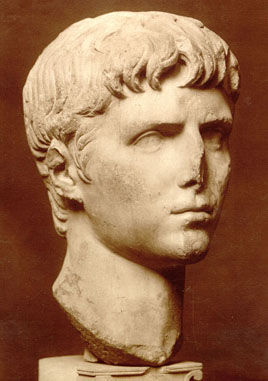
Towards the end of Marius' life in 86 B.C.E., internal politics reached a breaking point. As he gained political influence, Caesar's family gained wealth. Marius became one of the richest men in Rome at the time.

His paternal aunt, also known as Julia, married Gaius Marius, a talented general and reformer of the Roman army. His elder sister, Julia, was grandmother to Caesar Augustus. He was the namesake of his father (a praetor who died in 85 B.C.E., and his mother was Aurelia Cotta. No member of his family had achieved any outstanding prominence in recent times, though in Caesar's father's generation there was a period of great prosperity.

Caesar was raised in a modest apartment building (insula) in the Subura, a lower-class neighborhood of Rome.Īlthough of impeccable aristocratic patrician stock, the Julii Caesares were not rich by the standards of the Roman nobility. This legend is more likely a modern invention, as the origin of the Caesarian section is in the Latin word for "cut," caedo, -ere, caesus sum. Julius Caesar was born in Rome, into a patrician family ( gens Julia), which supposedly traced its ancestry to Iulus, the son of the Trojan prince Aeneas (who according to myth was the son of Venus).Īccording to legend, Caesar was born by Caesarean section and is the procedure's namesake, though this seems unlikely because at the time the procedure was only performed on dead women, while Caesar's mother lived long after he was born.


He extended Roman citizenship to all within the Empire, introduced measures that protected marriage and the institution of the family, reduced the national debt, and showed genuine concern for the welfare of ordinary Romans.Ĭaesar was proclaimed dictator for life, and he heavily centralized the bureaucracy of the Republic. Caesar is widely considered to be one of the foremost military geniuses of all time, as well as a brilliant politician and orator.Ĭaesar fought in a civil war that left him undisputed master of the Roman world, and after assuming control of the government began extensive reforms of Roman society and government. His conquest of Gaul extended the Roman world all the way to the Atlantic Ocean, and he was also responsible for the first Roman invasion of Britannia (Great Britain), in 55 B.C.E. – March 15, 44 B.C.E.) was a Roman military and political leader whose role in the transformation of the Roman Republic into the Roman Empire changed the course of Western civilization. – 68 B.C.E.ģ) Calpurnia Pisonis 59 B.C.E.


 0 kommentar(er)
0 kommentar(er)
